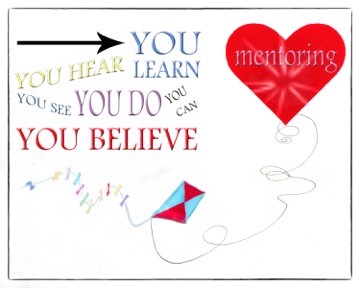Life can be a maze of challenges and surprises, and the ability to navigate them often comes down to one crucial element: our mindset. When challenges arise, a strong mindset acts as a stabilizing force, helping us adapt and thrive despite uncertainty. But what does it truly mean to cultivate resilience and trust in ourselves?
Let’s explore how self-trust, reframing negative thoughts, fostering connections, and incorporating daily practices can build a resilient mindset capable of navigating through life’s challenges.
The Power of Self-Trust
At the core of resilience lies self-trust—the unwavering belief that we can rely on ourselves, no matter the circumstances. Self-trust is not about perfection but about knowing we can face challenges and make decisions aligned with our values.
To build self-trust, start small. Keep promises to yourself, whether it’s completing a task, showing up for a commitment, or taking time to rest and recharge. Each fulfilled commitment sends the message that you are reliable and capable.
Self-reflection also plays a vital role. Take moments to look back on past challenges and celebrate how you overcame them. What strengths did you draw on? What lessons did you learn? These reflections remind you of your inner resourcefulness and encourage a growth-oriented perspective.
Finally, practice self-compassion. Resilience doesn’t mean never faltering; it means extending kindness to yourself when you do. A strong mindset is one that can forgive, adapt, and grow.
Navigating Negative Thoughts
Our thoughts shape our reality, and a strong mindset depends on how we manage them. Negative narratives, like “I’m not good enough” or “I always fail,” can undermine resilience and erode self-trust.
The first step is awareness. Pay attention to your inner dialogue. When you notice a negative thought, pause and question its validity. Is it based on fact, or is it a fear-driven assumption?
Reframing can be transformative. For example, instead of saying, “I can’t do this,” try, “This is challenging, but I can take it one step at a time.” Small shifts in language can create a big impact on how we perceive our abilities.
Gratitude is another powerful tool. While it doesn’t dismiss challenges, focusing on what’s going well can rewire your brain to notice the positive aspects of life. Journaling a few things you’re grateful for each day can shift your perspective and strengthen your mindset.
Building Resilience Through Connection
Resilience isn’t built in isolation. Strong relationships provide a safety net that can soften life’s blows.
To foster connection, focus on open and honest communication with trusted individuals. Share your challenges and allow others to support you. Setting boundaries is equally important. Resilience requires conserving energy for the things and people that matter most.
Healthy connections balance independence and interdependence. While it’s empowering to trust yourself, knowing when to lean on others can be just as crucial. Seeking help or advice doesn’t diminish your strength; it enhances it.
Practical Strategies to Strengthen Your Mindset
Building a strong mindset takes intentionality. Here are three strategies you can begin today:
- Daily Mindfulness or Meditation
Set aside a few minutes each day to focus on your breath, observe your thoughts, or ground yourself in the present moment. This practice can reduce stress and increase clarity, making it easier to navigate challenges.
- Journaling for Growth
Use a journal to identify patterns in your thoughts and behaviors. Reflect on what triggers negative thinking and what helps you feel strong. Track your progress and celebrate even small wins—they are steppingstones to resilience.
- Celebrate Small Wins
Every day presents opportunities to acknowledge your efforts. Whether it’s completing a project, saying no to an unnecessary commitment, or simply showing up for yourself, these moments reinforce your strength and self-trust.
Conclusion
Resilience is not a trait we’re born with—it’s a skill we cultivate through intentional effort and self-discovery. By building self-trust, reframing negative thoughts, fostering supportive connections, and incorporating daily practices, you can develop a mindset that not only endures challenges but thrives because of them.
Take a moment today to choose one strategy and commit to trying it out. Reflect on how it makes you feel, and remember: every step forward, no matter how small, is proof of your strength and capacity to grow.
Find more from Jamie here.













